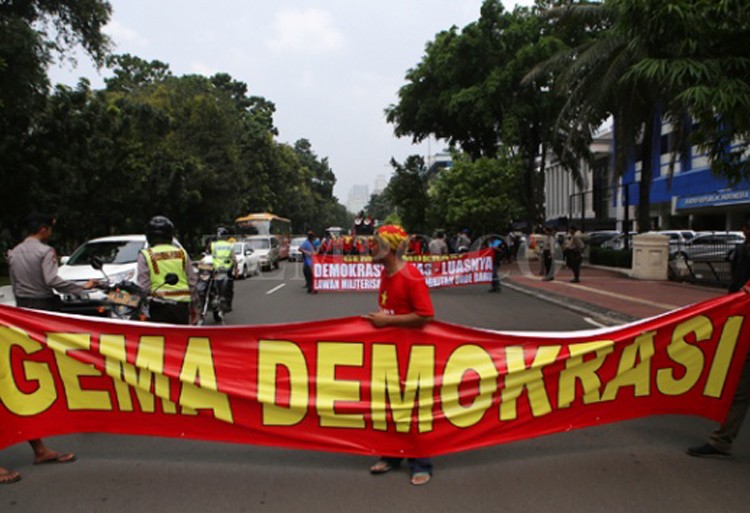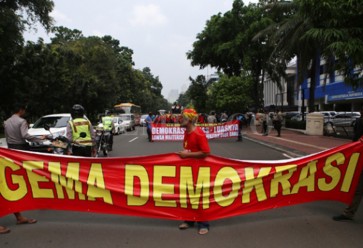Popular Reads
Top Results
Can't find what you're looking for?
View all search resultsPopular Reads
Top Results
Can't find what you're looking for?
View all search resultsFrom reformation to deformation? 25 years of backsliding
The rule of law in Indonesia has become “rule through law”, meaning “the ruling elites ensure that the law, the courts and law enforcement institutions side with the powerful".
Change text size
Gift Premium Articles
to Anyone
M
y current pet peeve is the recent trend of people saying, “Siap!”, which literally means “Ready!” but in Indonesia is how military subordinates respond when their superior officer gives them a command. In English it would be “Yes sir!”, while clicking one’s heels and giving a military salute, raising the arm and touching the side of the forehead or cap with the tip of the forefinger.
Lately, all and sundry – young and old, women and men, activists, intellectuals, lay people, Muslims and non-Muslims – say “siap”, when in the past they would have said “oke” (okay), “baik” (fine), or “sip”, which possibly derives from the English word “safe”, meaning “all clear”, “for sure”, “guaranteed” or “very nice”, depending on the context. “Oke”, “baik” and “sip” are just as short and snappy as “siap”, so I am not sure why people started to pick it up. Is militarism secretly embedded in our collective unconscious?
This trend irritates me, as I associate it with the New Order military authoritarian regime. It lasted from 1966 to 1998, which means I spent 32 years of my life, from age 12 to 44 in it. The adult part of these 32 years were spent fighting it, mainly through my writings, which were critical of the regime. Risky business that, as in the New Order, dissidents could be blacklisted, taken in, interrogated or even “disappeared”.
May 21, 1998, was when president Soeharto stepped down, supposedly marking the end of the New Order regime that he led and the beginning of the Reform Era, making this year the 25th anniversary of the start of Reformasi, as we refer to it in Indonesian.
As someone who not only witnessed but was deeply involved in activism and demonstrations against the Soeharto regime and also documented the events, I have a very personal and intimate connection to the birth of this period. I decided to reread some of the chapters in my 2004 book, Sex, Power and Nation (Metafor, 2004), which contains 20 pieces written between 1979 and 2003, mainly during the New Order era.
Chapter 1, “Bananas, Backstabbing and Anarchy”, originally titled “Reform or Revolution: The end of the Soeharto Era”, was published in This is Yomiuri, in June 1998. It recounted the days of horrifically violent anarchy, looting, mass rapes and destruction that occurred at the end of the New Order regime, with students storming the House of Representatives building. It was a politically untenable situation that culminated in President Soeharto stepping down after 32 years in power.
Chapter 13, “The Mass Rapes of May” is about the mass rape of ethnic Chinese women, targeted as proxies for the Chinese crony conglomerates of the Soeharto family, who together amassed an incredible amount of wealth during the New Order.



















